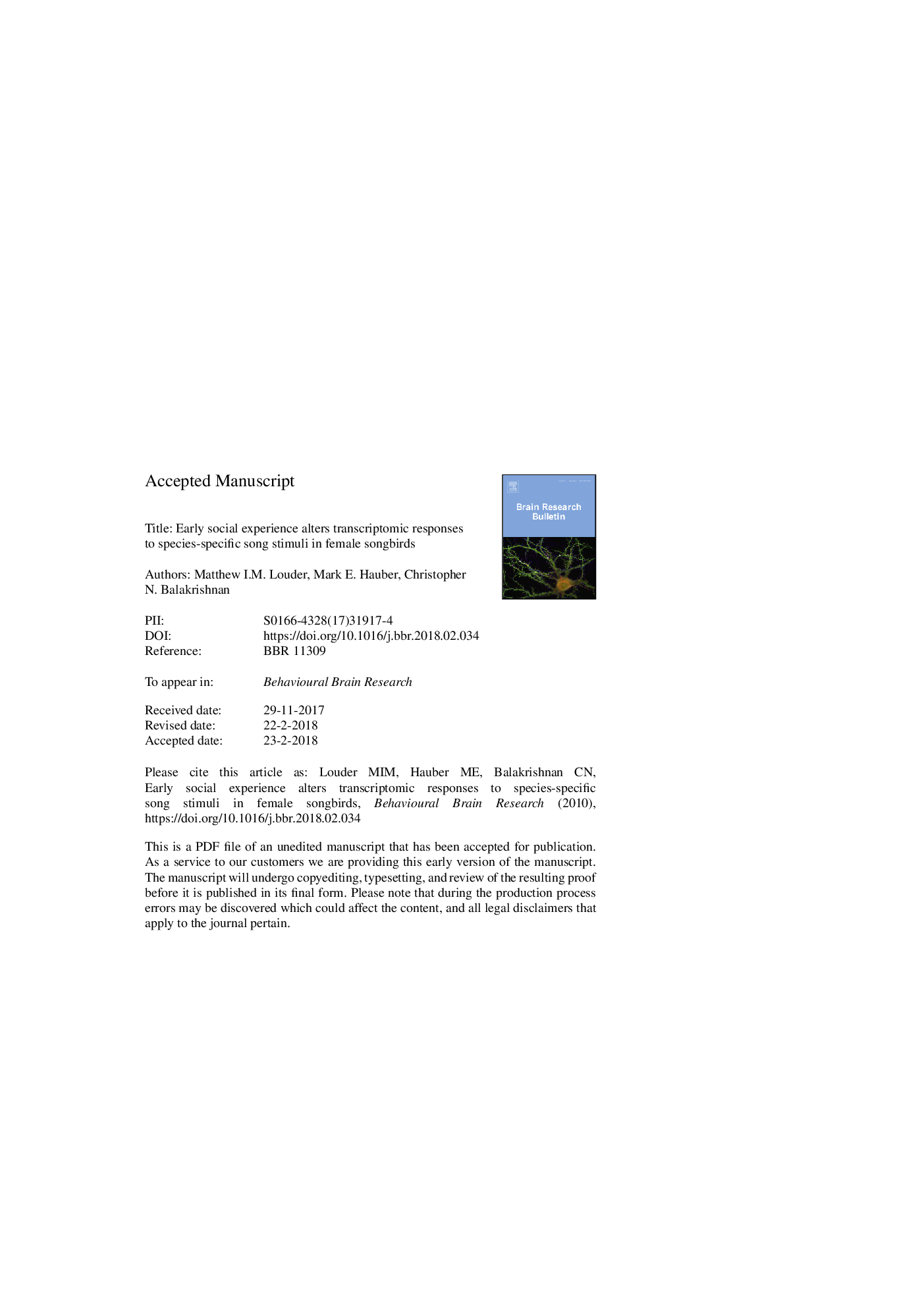| کد مقاله | کد نشریه | سال انتشار | مقاله انگلیسی | نسخه تمام متن |
|---|---|---|---|---|
| 8837771 | 1612888 | 2018 | 31 صفحه PDF | دانلود رایگان |
عنوان انگلیسی مقاله ISI
Early social experience alters transcriptomic responses to species-specific song stimuli in female songbirds
ترجمه فارسی عنوان
تجربه اجتماعی اولیه، واکنش های ترانسکتکتومی را به انگیزه های آهنگ خاصی در نژادهای زنانه تغییر می دهد
دانلود مقاله + سفارش ترجمه
دانلود مقاله ISI انگلیسی
رایگان برای ایرانیان
کلمات کلیدی
شناسایی گونه ها، دروازه حسی، گیرنده های کولینرژیک نیکوتین، خون محیطی، پیشانی شنوایی وارد کردن
موضوعات مرتبط
علوم زیستی و بیوفناوری
علم عصب شناسی
علوم اعصاب رفتاری
چکیده انگلیسی
Amongst an array of stimuli from countless species, animals must recognize salient signals, including those of their own species. In songbirds, behavioral tests have demonstrated that preferences for conspecific male songs are determined by both preexisting biases and social experience with a male 'tutor' during the sensitive period for learning. Although immediate early gene expression (e.g. ZENK) and electrophysiological experiments generally find greater neural responses for conspecific songs, it remains unclear whether distinct mechanisms, such as sensory gating, are engaged to filter out irrelevant heterospecific songs. Here we compare the transcriptomic profiles, via RNA-seq, of non-singing females of a songbird, the zebra finch (Taeniopygia guttata), by focusing on the auditory forebrain, a region known to be critical in the processing of conspecific vs. heterospecific songs. Gene expression profiles demonstrate that different neural mechanisms are involved in the processing of conspecific versus heterospecific Bengalese finch (Lonchura striata) songs. In particular, one gene known to mediate sensory gating, the alpha 3 subunit member of nicotinic cholinergic receptors (CHRNA3), was significantly downregulated in response to hearing Bengalese finch song, but not when young females were tutored by a Bengalese male during early development. Overall, our results confirm previous behavioral and physiological studies, such that heterospecific-tutored individuals processed both conspecific and tutor songs similarly. Using transcriptomic profiling of peripheral blood samples, we also demonstrate the methodological potential of non-terminal sampling to identify transcriptomic biomarkers for conspecific auditory recognition. These results show how experience and inherited preferences facilitate the neural processing of salient songs by female songbirds.
ناشر
Database: Elsevier - ScienceDirect (ساینس دایرکت)
Journal: Behavioural Brain Research - Volume 347, 16 July 2018, Pages 69-76
Journal: Behavioural Brain Research - Volume 347, 16 July 2018, Pages 69-76
نویسندگان
Matthew I.M. Louder, Mark E. Hauber, Christopher N. Balakrishnan,
